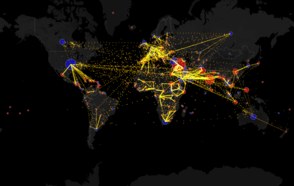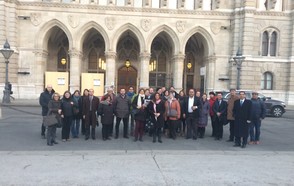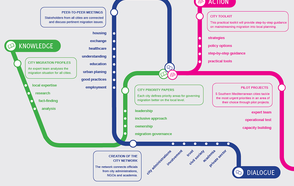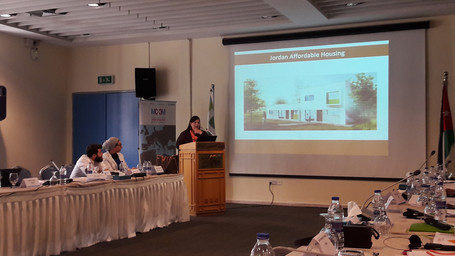
Photo credit: @Marie-Louise Arnoux / @Ana Feder
Cities from across the world met in Gran Amman municipality to exchange knowledge and experiences of urban planning and social housing for migrants.
From 25-26 of April, Gran Amman municipality hosted the Fifth Learning Meeting of the Mediterranean City-to-City Migration Project (MC2CM), entitled “Social Housing and Urban Planning: Inclusive Cities for Migrants”.
The meeting aimed to offer cities capacity building through an exchange of experiences on techniques, methodologies and political tools that would allow a more integrated approach to issues relating to migrants’ access to housing and its relationship to urban planning.
Local and national housing and urban planning policies were discussed and main challenges identified, particularly in terms of inter-institutional dialogue and improving access to housing for the most vulnerable.
The meeting was an opportunity for participating cities (Amman, Lyon, Lisbon, Tunis and Tangier) to present their experiences and practices relating to social housing and urban planning. Their diverse national contexts provoked reflections on the impact of the level of decentralization (and the resulting legal frameworks and financial resources available to cities) on the political management of social housing and urban planning.
Emphasis was placed on the key role of cities, whatever their political context, in ensuring the inclusion of vulnerable groups (including migrants), due to the fact that they are able to know and understand their needs and demands. Cities are close to the people, allowing them to have effective dialogue with residents on participatory policies with greater sustainability and impact.
In the framework of the meeting, a visit was made to the oldest Palestinian refugee camp in the city, Al-Wihdat, set up in 1955 and home to 51,000 registered refugees. After a gradual urbanization process, Al-Wihdat has become a neighbourhood of Amman, and one of the city’s more important hubs of economic activity. 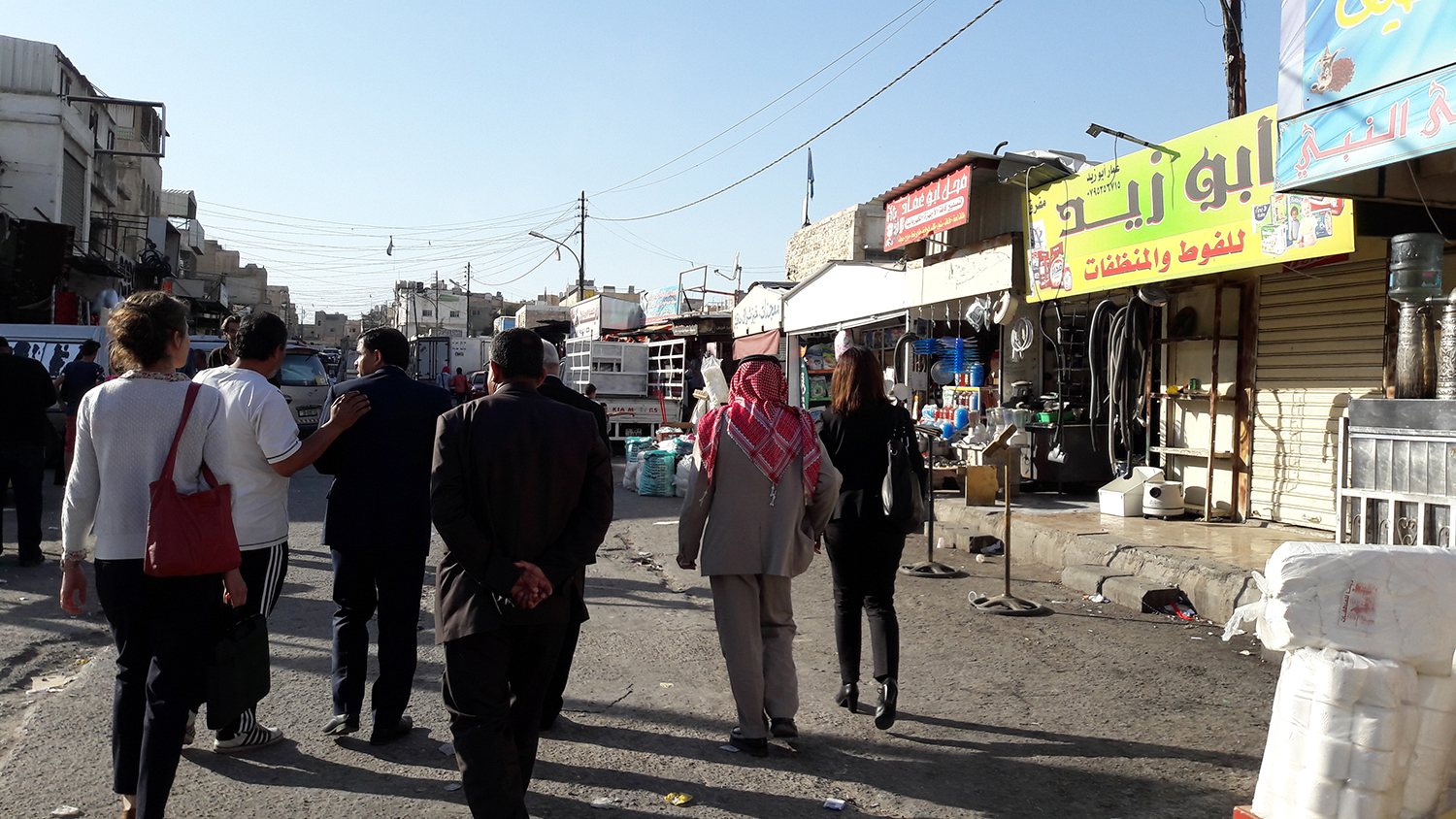
Participants in the visit met with the Al-Wihdat committee of community representatives to get to know the history and development of the camp in terms of urban infrastructure and basic services. The process took place under community leadership, with increasing involvement of the Gran Amman municipal government over time.
The experience of Al-Wihdat provoked reflection on the case of refugees fleeing the crisis in Syria (almost half a million Syrian refugees have been registered in Amman). The city has decided to avoid setting up new refugee camps, and is instead trying to distribute newly arrived refugees in housing across the city.
The Sixth Learning Meeting of the MC2CM will be held from 11-12 of July in Turin and will focus on formal and non-formal education as an indispensable tool to ensure the inclusion of migrants at local level. Representatives of the municipalities of Amman, Beirut, Lisbon, Lyon, Madrid, Tangier, Tunis, Turin and Vienna are expected to participate.
More information about the Sixth Learning Meeting of the MC2CM
About the Mediterranean City-to-City Migration Project (MC2CM)
Internal and international migration flows in the Greater Mediterranean region have a direct and lasting impact in cities, since they are frequently the destination of the migrant population. In order to optimize the social and economic potential of migrants, local governments need capacities in the field of migration governance, particularly in terms of providing access to rights and services.
In this context, the MC2CM Project seeks to contribute to improving the governance of migration at local level in cities in Europe and the Southern Mediterranean.
The initiative is led by the International Centre for Migration Policy Development (ICMPD), in partnership with United Cities and Local Governments (UCLG) and the UN Human Settlements Programme (UN HABITAT). The project is supported by the UN High Commission for Refugees (ACNUR). The cities participating are: Amman, Beirut, Lisbon, Lyon, Madrid, Tangier, Tunis, Turin and Vienna.











